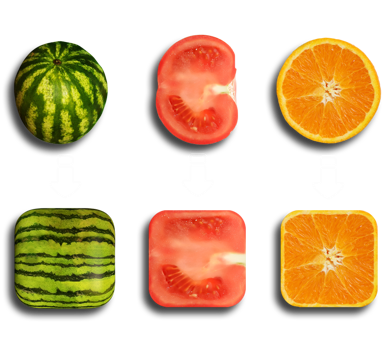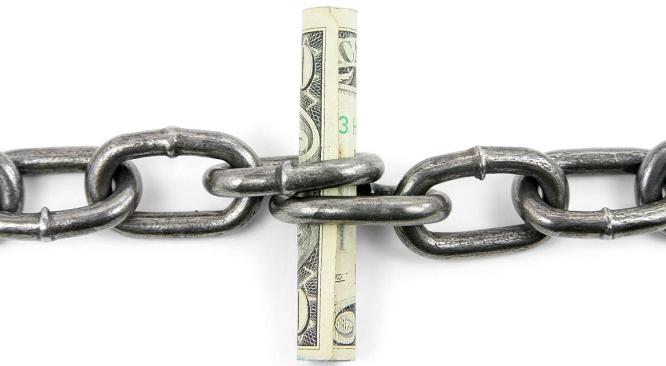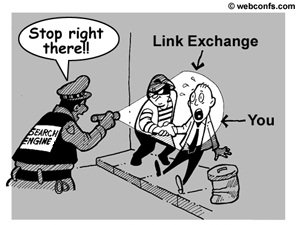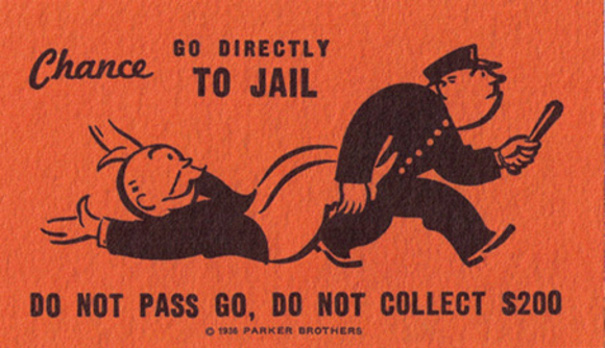Unnatural links. Everybody talks about them: Webmasters struggle to find tools that could help them identify the rotten apples in their garden. Google sharpens its weapons to catch “the enemy”. Black Hat SEO fans gets the chills and internet users try to avoid them. We all relate to them but do we really know what unnatural links are?

What is an Unnatural Link about?
In a few words, as it is presented in the Google Webmaster Guidelines, any link that intends to manipulate the PageRank, or the search engine results, no matter if there is a link to your site or an outgoing link from your site, is considered an unnatural link. Additionally, creating links that weren’t editorially placed or vouched for by the site’s owner on a page, otherwise known as unnatural links, can be considered a violation of the Google Guidelines.
From their statements, we deduce that Google’s main concern is to keep users away from bad search experiences, providing them with the most relevant results.
The “naturalness” of a link can be seen as an editorial choice.
The “naturalness” of a link is, up to a point, an editorial choice. It all boils down to your ability to link to a site from your site based on usefulness. For instance, you are a fan of British Airways and you choose to talk about this company on your blog, your site or on forums because you really had a good experience with this brand. You really want to tell the world what a great company they are and how their services helped you a lot in a certain situation. Doing this is not considered to be a violation of Google’s Guidelines. However, if you write about British Airways because this company promises you free flight tickets or saves you from paying taxes for your extra luggage, then this is an unnatural link we are talking about.(unless you mark the link with the rel=nofollow HTML attribute)
Unnatural Link Synonyms
Some people refer to unnatural links with the following synonyms:
- inorganic links
- toxic links
- low quality links
- artificial links
- manually created links
- deceptive links
- manipulative links
- impact links
Where is the end of “natural” and the beginning of “unnatural” ?
If you find it hard to make a delimitation between natural and unnatural in terms of links, here is a thing that you can do. You need to ask yourself:
“Would I still be linking to that site if the SERPs didn’t exist?
Would I still be recommending this site/blog/company/etc. if search engines didn’t exist? If the answer to this question is yes, then it is an organic or natural link we are talking about. If the answer to this question is no, then that link is most likely a violation of Google’s guidelines and, therefore, is considered to be unnatural.
Long story short, unnatural links comes down to link selling. It doesn’t matter if we’re talking about money, gifts, a massage :), a 6 Pack or any sort of material compensation. It is still a sort of transaction. The same situation applies when we’re talking about excessive link exchange. It is still a sort of unnatural transaction that does not occur naturally but is artificially generated with the purpose to influence the ranking in Google.

The war against link selling is meant to maintain the competition on a level playing field, offering equal chances to all websites. You wouldn’t want somebody who just has more money to automatically be able to rank better on the search engines.
I know that as nice as this “equal chance” story may sound , AdWords still exists and, like it or not, is a kind of link selling with the distinction that you get an invoice for the transaction. Without getting into ethical issues, at the end of the day, AdWords remains a Google accepted form of selling links that often brings results for those with deep pockets.
The most common unnatural link examples
Much like the law, the “naturalness” of a link can be can be interpreted in our favor. For instance, excessive link exchanges or linking to low quality sites are practices that are in disagreement with Google’s guidelines. But how much is excessive? How low should the quality of a site be? In order to avoid these kind of ambiguities, we will give some examples of common links that have an unnatural flavor, according to Google’s Guidelines:
- Any link that is generated due to a payment in money
On the surface, things seem pretty clear here: if you offer money in exchange for placing your link on a site, that link will be considered unnatural. However, things are a little more complicated than this. Let’s say you organize a charity event and you want to link to a company that donated an amount of money to help you out with the event. Is it considered to be an unnatural link? Well, it depends. If that company gives donations in exchange for links and uses these actions as a link building strategy, then it is surely a violation of the “Guidelines”. If the donor company has just a couple of links thanks to some sponsorship campaign it did, then is very likely they are organically generated.

- Any link that is generated due to an exchange of goods and services
If you receive or give any good or service in return for a link, then that link is considered to be unnatural. Let’s say that a company that is selling frying pans sends one of their products to 100 cooking bloggers, encouraging them to write about the frying pan received as a gift. Will Google consider the links that the bloggers will generate as being unnatural? It will surely do. But, if the frying pans company wants to stay on Google’s good side, they have to prove that they didn’t have the intention of manipulating the PageRank. Thereby, they should ask the bloggers to mark the links as nofollow so they cannot pass PageRank.

- Links that are widely distributed in the Footer of a page or on the Blogroll
If for blogrolls things are pretty clear, when it comes to links that appear in footers, things get a bit complicated. Let’s start with blogrolls: If in your blogroll you are linking to pages relevant for your content, then those links are considered to be natural. But if you are having 100 links on your page and more than half of them can be found in the blogroll, then it is clear that the situation is not “natural”.
When in comes to links distributed in footers, Google is being a bit ambivalent. Let’s say you are a web design company and you place in the footer of the designed sites a link to your webpage. Google might consider this action as ok but might also considered it as unnatural, claiming that it is a self-made link or it’s a link that is generated due to an exchange of service. How does Google decide whether these kind of links are natural or unnatural? Depending on the intent. It should be clear for Google that the webmaster is linking to a site on purpose and not because it was required to. Ok, you’ll say. And how can Google accurately identify the intent? Well, I think that’s a thing that only Google knows.
- Any link that is a result of a “link to me and I’ll link to you” campaign
Let’s say that you are the webmaster of a financial audit site. On your page you have a section where you recommend several accounts, attorneys and tax experts. Maybe some of the ones you recommended also linked to our page. Is this considered “excessive link exchanges”? Most likely no. But if on your website you have a list with hundreds of recommendation from a wide geographical area, and most of your “recommendations” also link to your page, then it is very likely that you’ll receive an penalty from the “Google Penguin”.

- Links on Low-Quality Web-directories or Bookmark sites
This looks quite clear also, doesn’t it? If you have many links on low-quality webdirectories, they are most likely to be considered as unnatural. But then again, the question arises:
Who draws the line between low and high quality? Google, of course. We are playing in its yard.
And how does the big “G” decide the quality of a web directory? Most likely, a web directory is considered to have a high quality if it has some sort of human interaction, such as an editorial process. In this case not all sites can auto-submit their links and there is a whole process whereby the web-directory decides the relevancy of a certain site in list with links.
- Links with optimized anchor text (articles, press releases etc)
These kinds of links are very common, and the digital world is full of articles stuffed with anchor text. I’ll go back to the frying pan company to give an example on this line. Let’s say that our company writes an article on a cooking blog and it contains passages such as the following:
It is great to cook using good frying pans. Depending on the frying pan you are using, you can prepare tasty food in no time. Frying pans add value to the quality of your food and make cooking a pleasant experience.
Doesn’t look very natural, does it? I bet Google agrees on this one too.
You’ve got mail! The mail…
The story is clear: if you’re selling links to influence page rank or you violate in some way the “guidelines”, you may get the unwanted Google Penalty message. After you update your Facebook status with sad faces and get out in the street screaming that life is unfair, you have to put yourself together and find the way to get back on track.

Now, you need to remove just the unnatural links. You can walk blindly through the lawn of unnatural links trying to correctly identify the ones you’ve been penalized for or you could use a smart tool that outlines the links that may have caused the penalty.
Let’s say you’ve come clean and you ask Google to take a look at your site to see that your redemption is real. When checking the situation, what the big “G” wants to see is that the issue is fixed and that this violation won’t be happening again. So, how can you convince the search engine that the situation is indeed like this? After removing the unnatural links you should do a well documented reconsideration request. Do you know the saying “ a sin confessed is half forgiven?” Surely Google does. In the request you are sending you don’t have to speak only about the improved current situation and about how you are going to do things from now on. You have to give details about the “dirty job” that you’ve done and how you got rid of it.
Other Unnatural Link Resources you should read
- Matt Cutts about Paid Links
- How to Detect Unnatural Links
- An Unnatural Link Recovery Story
- Unnatural Links – The NO.BS. Guide [preso]
- Various “Unnatural” Problems reported on the Google Product Forums
- How Google Broke the Bank – The Famous Halifax Penalty [case study]
Conclusion
Can we dance waltz on a minefield?

With all the guidelines and restrictions, it feels like Google is asking us to dance waltz on a minefield. Some restrictions are needed in order to maintain a healthy climate among the link building strategies.
The question that’s probably on your lips now is: are there chances to follow Google’s guidelines religiously and still rank high for the keywords you want to rank?
With the hope that I brought some light in the dark world of unnatural links, I’d be more than pleased to hear your opinion on this matter.
Photo credits: 1 2 3 4 5
 Site Explorer
Site Explorer Keyword tool
Keyword tool Google Algorithm Changes
Google Algorithm Changes

Leave a Reply!